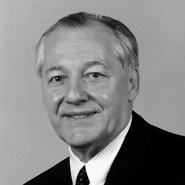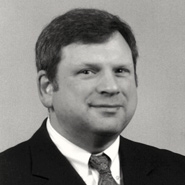Adam v. Spotswood
We defended a husband and wife, homeowners, who had rented their home to the plaintiffs, a husband, wife, and infant child. Approximately 2 months after moving into the home the infant child was diagnosed with autoimmune pancytopenia a relatively rare but known blood disorder. Autoimmune pancytopenia is a depression of the blood cell lines, reds, whites, and neutrophils. At about the same time that the infant child was diagnosed with autoimmune pancytopenia, mold, including stachybotrys mold, was discovered in the home. The plaintiffs claimed that they were forced to abandon the home, destroy all of their personal property, and further that the mold exposure caused the infant child's autoimmune pancytopenia. The theories of recovery asserted against the defendant home owners were of negligence, breach of contract, and breach of the warranty of habitability. At trial plaintiffs proceeded solely on their negligence theory.
During pretrial discovery it became clear that the plaintiffs' expert on the contention that the alleged mold exposure caused the infant's autoimmune pancytopenia was not following generally accepted scientific/medical methodology to reach his causation opinion. On behalf of the home owners, we filed a Frye motion to exclude this expert. After extensive depositions of both the plaintiffs' expert and our expert as well as briefing and arguing the issue, the trial judge excluded the plaintiffs' expert's testimony that mold caused the infant son's autoimmune pancytopenia. At trial, plaintiffs proceeded on their property damage claim and also on the theory that their infant son's asthma was caused by the alleged mold exposure in the home.
Following three days of trial, the jury returned a verdict for less than 10% of the claimed property damage and a defense verdict on the asthma claim.
Plaintiffs filed post trial motions seeking to reverse the trial court's decision to exclude the plaintiffs' expert on autoimmune pancytopenia. The trial judge affirmed his decision. The plaintiffs then took an appeal to the Pennsylvania Superior Court. The Superior Court affirmed the trial court's decision to exclude the plaintiffs' expert's testimony that mold caused autoimmune pancytopenia.
During pretrial discovery it became clear that the plaintiffs' expert on the contention that the alleged mold exposure caused the infant's autoimmune pancytopenia was not following generally accepted scientific/medical methodology to reach his causation opinion. On behalf of the home owners, we filed a Frye motion to exclude this expert. After extensive depositions of both the plaintiffs' expert and our expert as well as briefing and arguing the issue, the trial judge excluded the plaintiffs' expert's testimony that mold caused the infant son's autoimmune pancytopenia. At trial, plaintiffs proceeded on their property damage claim and also on the theory that their infant son's asthma was caused by the alleged mold exposure in the home.
Following three days of trial, the jury returned a verdict for less than 10% of the claimed property damage and a defense verdict on the asthma claim.
Plaintiffs filed post trial motions seeking to reverse the trial court's decision to exclude the plaintiffs' expert on autoimmune pancytopenia. The trial judge affirmed his decision. The plaintiffs then took an appeal to the Pennsylvania Superior Court. The Superior Court affirmed the trial court's decision to exclude the plaintiffs' expert's testimony that mold caused autoimmune pancytopenia.


